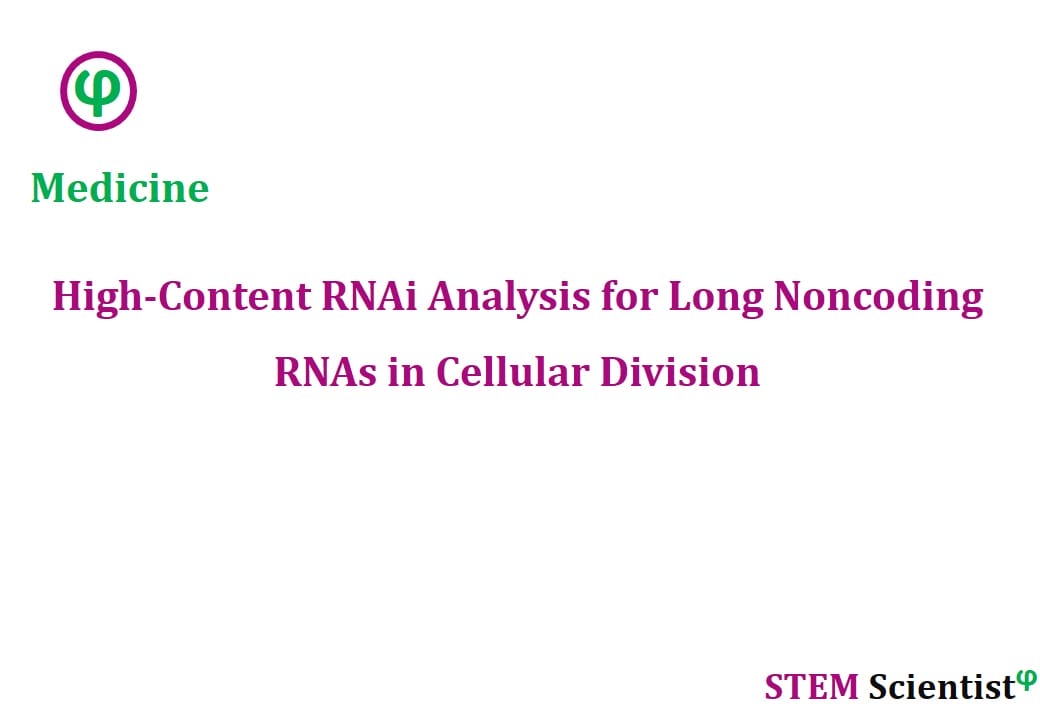
The following study was conducted by Scientists from Cancer Research UK Cambridge Institute, University of Cambridge, UK; Institute of Cancer Research, London, UK; European Bioinformatics Institute, European Molecular Biology Laboratory (EMBL-EBI), Wellcome Genome Campus, UK; Wellcome Trust Sanger Institute, Wellcome Genome Campus, Cambridgeshire, UK; Division of Regulatory Genomics and Cancer Evolution, Deutsches Krebsforschungszentrum, Heidelberg, Germany. Study is published in Nature Communications Journal as detailed below.
Nature Communications; Volume 11, Article Number: 1851; (2020)
A High-Content RNAi Screen Reveals Multiple Roles for Long Noncoding RNAs in Cell Division
Abstract
Genome stability relies on proper coordination of mitosis and cytokinesis, where dynamic microtubules capture and faithfully segregate chromosomes into daughter cells. With a high-content RNAi imaging screen targeting more than 2,000 human lncRNAs, we identify numerous lncRNAs involved in key steps of cell division such as chromosome segregation, mitotic duration and cytokinesis. Here, we provide evidence that the chromatin-associated lncRNA, linc00899, leads to robust mitotic delay upon its depletion in multiple cell types. We perform transcriptome analysis of linc00899-depleted cells and identify the neuronal microtubule-binding protein, TPPP/p25, as a target of linc00899. We further show that linc00899 binds TPPP/p25 and suppresses its transcription. In cells depleted of linc00899, upregulation of TPPP/p25 alters microtubule dynamics and delays mitosis. Overall, our comprehensive screen uncovers several lncRNAs involved in genome stability and reveals a lncRNA that controls microtubule behaviour with functional implications beyond cell division.
Source:
Nature Communications
URL: https://www.nature.com/articles/s41467-020-14978-7
Citation:
Stojic, L., A. T. L. Lun, et al. (2020). “A high-content RNAi screen reveals multiple roles for long noncoding RNAs in cell division.” Nature Communications 11(1): 1851.


